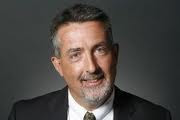Three stories, 3 hosts, 3 continents. Professor John D. Steinbruner on a new report to the C.I.A. about disruptive climate change. Ecoshock's Gerri Williams with Jonathan Kaufman, EarthRights International. Why do big oil companies pay for spills in developed countries, and get away with murder in Nigeria? From Berlin, Daphne Wysham with expert Hans Verholme: the fantastic growth of renewable energy in Germany. Radio Ecoshock 121128 1 hour.
LISTEN TO OR DOWNLOAD THESE FREE MP3 DOWNLOADS FOR THE PROGRAM
Full show in CD quality (56 MB)
Full show in faster downloading, lower quality Lo-fi (14 MB)
The John D. Steinbruner interview (18 min) in CD Quality or Lo-Fi.
Gerri Williams interviews Jonathan Kaufman of EarthRights on Nigeria (24 min) in CD quality or Lo-Fi
Daphne Wysham interviews Hans Verholme in Berlin (18 min) in CD quality or Lo-Fi
WHAT DOES THE CENTRAL INTELLIGENCE AGENCY KNOW ABOUT CLIMATE CHANGE?
John D. Steinbruner
A new report to the C.I.A. advises the intelligence and security community to prepare for disruption in a warming world.
The title of the assessment from National Research Council is “Climate and Social Stress: Implications for Security Analysis.” You can read the full text of this report here.
In a strange irony, presentation of this report to the C.I.A. was temporarily postponed, as the capital closed down due to a violent storm, Hurricane Sandy.
Our guest is John D. Steinbruner. He's a Professor of Public Policy at the University of Maryland, and chairs the 14-member panel of experts who conducted the analysis for the intelligence community.
If I were in the C.I.A., I would certainly have paid attention to the Russian heat wave of 2010. At least one nuclear reactor, and another Russian military base with nuclear materials were cut off and threatened by fire, which was stopped only by extraordinary measures.
DOES DISASTER MAKE BIG GOVERNMENT WEAKER OR STRONGER?
Let's consider climate and government. A major climatic event might destabilize a central government, or it might make it stronger.
Take the case of the Pakistan floods of 2010, which covered an estimated one fifth of the land area in this nuclear-armed country. There could have been social break-down, but my understanding from people in-country was the government looked after its own supporters first, and may have been strengthened by disruption in areas where they had weak control anyway.
Even considering U.S hurricanes, we could say the poor response of the Bush administration weakened the federal government. The anti-FEMA meme (the right wing conspiracy theory that the Federal Emergency Management Agency is planning concentration camps, etc.,) grew stronger after Hurricane Katrina. The idea that central government was incompetent, and less necessary, accelerated after 2005.
By contrast President Obama's team response may have strengthened public perception of the necessity of a strong central government. There was less hostility to Federal aid and demand for more of it.
Given the likely role of warming oceans and rising seas adding to the damage from both hurricanes, we can see the possibility of even worse future climate events affecting the ability to govern all over the world.
Consider Mali, that central African country suffering from long-term drought that may be linked to global warming. Islamic fundamentalists, carrying weapons taken from fallen Libya, have taken over the northern part of the country. The whole of the North Africa Sahel is drought-stricken and at the same time politically unstable.
Dr. Steinbruner and I spend more time looking at the flash point of Pakistan and India. Water needed to irrigate Pakistani crops, to feed the people, is dwindling in the Indus River, as glaciers and snowfall decline upstream in India. The Pakistani government blames its old enemy India, but is climate change the real culprit?
I ask Steinbruner how seriously the C.I.A. takes climate change. That's a difficult question as the Agency just closed its climate change office. Were they ducking Republican attacks on climate, ahead of looming budget cuts across the board in the Federal government? Did the C.I.A. climate operation just go underground (it's what they do for a living)? Or is the Obama Administration just not that interested in climate information? We don't know.
What we do know is the National Research Council report was well received where it was presented, and Dr. Steinbruner hopes it assist all the government agencies get ready for possible "climate surprises" coming up.
Unfortunately, the NRC was only tasked to look at the next ten years. The biggest surprises might come a decade or two later. Climate change is definitely a subject for long-term study and planning.
At least we know: the government has been told.
I have to wonder, how much will the intelligence agencies share with other government agencies, and the public? As we learned from 911, critical information can become compartmentalized. Right now, governments in some countries are either publicly denying climate change, or trying to avoid talking about it. If their intelligence agencies see a real threat, will we even find out in time to protect ourselves?
Climate change is a global problem unfolding in various ways across the world. A massive flood in Beijing or Mumbai might begin a financial or political domino effect reaching us at home. The report suggests a network of rapid information sharing between America, her allies, and other governments - as fast-developing climate events arise. But Pakistan considers things like rainfall statistics a national secret. India wants to sell the info to the U.S. Satellites can only do so much.
John Steinbruner has blogged about a book by Fred Guterl, the Executive Editor of Scientific American. It's called "Fate of the Species: Why the Human Race May Cause its Own Extinction and How We Can Stop It." Find an abbreviated version of that book here at Scientific American.
I ask Dr. Steinbruner whether the panel of National Research Council experts considered the possibility that runaway climate change could bring about the human extinction.
THE POSITIVE SIDE OF CLIMATE DISASTERS
One surprising result of the National Research Council study was the possibility of building better communities.
Climate instability may not be all bad. Tyrants may have a harder time subjugating people where climate stress changes communications and social relations. The victims may unite into new political formations.
Maybe people will develop a larger sense of a shared Earth.
It seems that people engulfed in the climate emergency, whether they live in Asia or the Rockaways of New York - have to create an instant community of self-help. Just look at the way Occupy movement members jumped in to help in the hardest hit areas. They were very effective, without government help.
Maybe we'll see more localization and resilience developing, as big weather events strike with more regularity. Will a more stressful climate change social organization?
John D. Steinbruner has written a lot of technical books on security and public policy, but also a novel "The Secular Monastery". It's an intriguing look at a society where information is used for the public good. That is a novel idea. Find more about that book here.
OIL CRIME AND JUSTICE IN NIGERIA
Jonathan Kaufman
Next we turn to unreported news: huge oil spills continue in Nigeria. In America, BP may pony up over 4 billion dollars in damages for their Deepwater Horizon blowout in the Gulf of Mexico. But in Nigeria, none of big oil corporations are fined for their decades of pollution. The fisher people lose their livelihoods; vast areas of the Niger Delta are plagued with oil spills and leaks.
But the government of Nigeria gets most of its income from oil revenues, not from taxpayers. Leaders there know where the money comes from, and more or less work for the oil multinationals like Shell, Exxon/Mobil and the usual suspects.
American and European multinationals are dodging the law and wreaking havoc with nature and local people. From the Washington studios of WPFW Pacifica radio, Ecoshock correspondent Gerri Williams reports.
Gerri's guest is Jonathan Kaufman, an attorney with EarthRights International. That organization finds ways to give a voice to the dispossessed, polluted and wronged in countries where justice is in short supply.
Kaufman describes the on-going oil mess in Nigeria, and the lack of redress. America imports lots of Nigerian oil, as does Europe. But hardly anyone covers the corruption and outright murder going on there.
What to do? The Shell oil company is being sued for damages in a local court in the Netherlands.
IF CORPORATIONS ARE "PEOPLE" THEY SHOULD BE HELD ACCOUNTABLE
Others have brought a suit all the way to the American Supreme Court. The discussion there should concern all of us. As you know, corporations have been designated as "persons" - people with rights. The current Supreme Court strengthened those corporate rights in the case of Citizens United.
But as Kaufman explains, there is a law dating back to the pirate days of 1789, as America's fundamental laws were drawn up. As I understand it, any person profiting from illegal action abroad could be brought to justice in an American court. Well.... corporations are "persons" - so this law should apply to big oil companies like Exxon or Shell. All of a sudden, lawyers are trying to argue corporations cannot be held responsible for things like genocide or pollution they cause or fund. They can't have it both ways.
So this is an interview for those interested in the mysteries of Nigeria, but also for everyone following the legal rights corporations are claiming for themselves, versus the public interest.
Find Jonathan Kaufman's blog here.
Gerri Williams did a great job getting this interview.
GREEN ENERGY SUCCESS IN GERMANY: HOW DID THEY DO IT?
Hans Verholme
Last summer, Germany - that industrial power of Europe - had enough renewable energy to sustain their entire grid. Daphne Wysham from the Institute for Policy Studies was in Berlin to find out how they did it. Daphne is the long-time Earthbeat Radio.
In Berlin, sitting beside the River Spree, outside the new German parliament buildings, Daphne sat down with energy and climate expert Hans Verholme.
The interview is important, because Verholme describes what works to make a country go for green energy. The population gets involved because they can make money at it too. Distributed energy is more important than giant wind or solar farms, and more resilient.
The struggle to keep the big energy and transmission corporations from ruining the green revolution never ends, Verholme says. But so far it's working in Germany, and Verholme has good advice for people in North America who want that same energy security along with a safer climate.
I wish I had a transcript of this interview. Anyone wanting to volunteer should email me at radio [at]ecoshock.org so we don't get duplication.
ECOSHOCK MATTERS
Again my thanks this week to all those who donated to keep Radio Ecoshock going. The "Donate" button is at the top right of this blog. Your donations let me concentrate on developing big stories.
The Kevin Anderson show two weeks ago continues to reverberate. Discussion continues on that blog item. Please note I added provided by a Radio Ecoshock listener. That's very helpful.
The Cabot Institute, who hosted Anderson's lecture "Real Clothes for the Emperor: Facing the challenges of climate change" posted a video of the whole lecture on this page.
Craig K. Comstock wrote about Anderson's talk in the Huffington Post, and linked to the Radio Ecoshock show.
Another listener sent me a link to another block-buster speech of climate bleakness. I'm working on that for your program next week.
This has been Radio Ecoshock. Find more free mp3 downloads at our web site, ecoshock.org
I'm Alex Smith. Thank you for listening.








